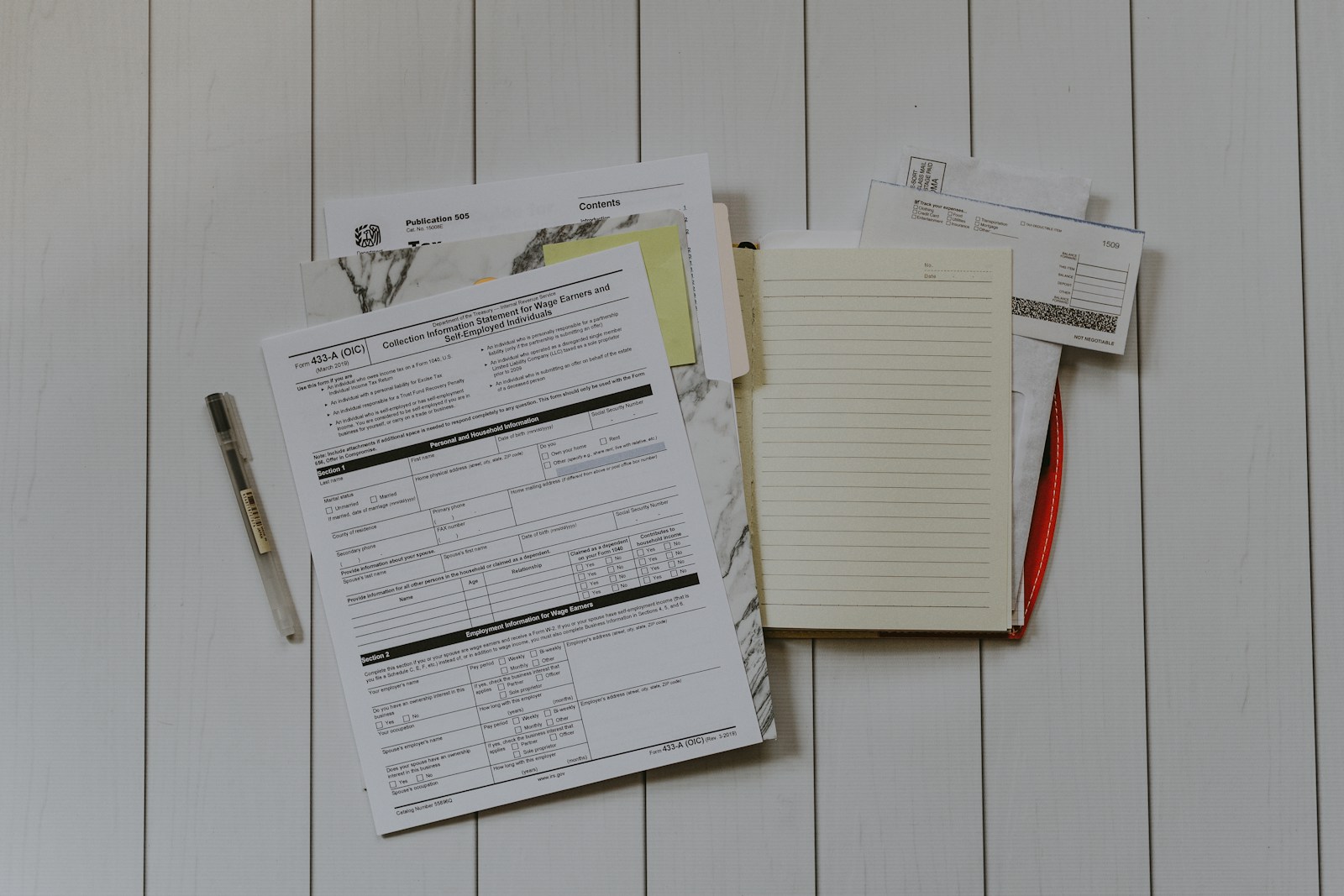If you’re involved in the property business in any way, you might be able to identify the main difference between a new property manager and a seasoned veteran within minutes. While it can be argued that several differences exist that build up with time and experience, the primary one that is our topic of discussion for the day is real estate accounting terminology. While it may sound like jargon at first, veteran property managers learn what these terms mean, what they indicate about a business’s finances, and what actions need to be taken.
This article is the one and only guide you’ll need to understand the labyrinth that is accounting terminology. Study it well and you’ll be able to make more empowered and informed decisions for your business. So, let’s get right into it!
Accounting Period
An accounting period is the duration of time reported in a financial statement that varies from annual, quarterly, and monthly periods. It is often customized to tailor to a client’s specific needs.
Accrual Accounting
Accrual accounting is one of the key principles of accounting where revenue and expenses are recorded as they are earned and incurred, regardless of whether you’ve received or paid the cash sum. This means that if you were to get an item from your supplier on credit, you’d record it as an expense even if you haven’t passed over the cash yet. On the other hand, if your customer has purchased property from you on credit, you’ll account for it as revenue even if the cash receipts haven’t come in. This provides a more accurate understanding of what the financial position of a property or the organization at large is, although it does not focus on cash flows.
Adjusted Cash Balance
The adjusted cash balance is the final accurate representation of available cash after accounting for various adjustments, such as outstanding checks, pending deposits, bank fees, and other factors that may impact the actual funds on hand.
Allocation
Allocation refers to the act of distributing funds or expenses to specified accounts, periods, or units. In the context of financial statements, property managers typically distribute revenues and costs over a specific accounting period, such as allocating an annual advertising budget over each quarter of the year. You might also come across allocation when distributing shared expenses, such as maintenance costs and utilities, among your properties.
Amortization
Amortization is the process of paying off your debt over time through regular payments, such as mortgage payments. It’s a structured and periodic method of repayment that imitates monthly installments paid on loans.
Asset
Anything that you own that provides any sort of economic value in your business can be classified as an asset. Assets can be fixed in the case of plants, equipment, land, and buildings. They can also be current, ranked from least to most liquid, starting with inventory or stock, to accounts receivable by clients to cash at the bank, and finally cash at hand.
Balance Sheet
This is a very common term that you’ll come across in the accounting world; balance sheets are basically listings that balance your debt-to-equity ratio. The equation behind this sheet can be expressed as:
Assets = Liabilities + Capital
You can contrast these statements with other businesses or your previous financial years to make a judgment about your financial position.
Bank Reconciliation Statement
Accounting isn’t easy. More often than not, you come across some discrepancies between your company’s records and the statement you receive from the bank. This is where the bank reconciliation statements come in. Starting with your ending balance on your bank statement and company statement, you compare the two and make adjustments where needed to reconcile the differences.
Bill Pay
Bill Pay is a specific service provided by banks and financial institutions that allows customers to pay their bills electronically through the online banking platform of their choice. It is not to be confused with EFT which is a broader umbrella term that Bill Pay falls under.
CAM Reconciliation
Common Area Maintenance (CAM) reconciliation is a process in commercial real estate leases where tenants pay both the rent and a share of the costs relating to the maintenance and operation of common areas of the property. These common areas may include things like lobbies, hallways, parking lots, landscaping, and other shared spaces. The CAM expenses reimbursed by the tenants need to match the actual amount of expenses incurred by the landlord during the prior year.
Capital Expenditures
Capital expenditures are any major, long-term expenses for improving or maintaining a property, such as renovations, upgrades, or significant repairs.
Cash Account
A cash account displays cash in various forms other than bank balances, including cash at hand, receipts and payments, the bank reconciliation statement, and other financial reporting.
Cash Accounting
The opposite to accrual accounting, cash accounting only recognizes revenue and expenses being received or charged when a cash sum is exchanged. If any transaction happens on credit, the exchange is not recognized until the money arrives.
Cash Flow
Cash flow refers to the difference between cash inflows (cash being transferred into your property) and cash outflows (cash being transferred out of your property). A cash flow statement takes operating, investing, and financing activities into consideration so your rental income and operational charges are also included.
Cash-on-cash Return
A cash-on-cash return is the percentage that measures the annual return on an investment relative to the amount of cash invested.
Chargeback
A chargeback occurs when a credit card holder disputes a charge on their account and requests for a reversal of the charge, resulting in reimbursement or expense recovery. Once you initiate a dispute, the matter is investigated, and if the resolution is in favor of your case, you get a chargeback.
Debit
A debit means an increase in your assets, such as your property or cash, and/or a decrease in your liabilities, such as repayment of a loan. It is also the notion of an increase in expenses and a decrease in revenue and equity.
Depreciation
Depreciation refers to a decline in the value of an asset over a particular period of time due to wear and tear, obsolescence, deterioration, and market conditions. Companies often provide a provision for depreciation to account for this decline every accounting period.
Electronic Funds Transfer
EFT refers to various electronic methods of transferring money from one bank account to another, such as direct deposits, wire transfers, online payments, and automatic bill payments. It is separate from BillPay as the latter is a specific service within the realm of EFT.
Escrow Account
This is an account where funds are held by a third party, usually a bank or any financial institution, for purposes such as property taxes and insurance.
Equity
Equity refers to any capital that is invested in the business, also calculated by subtracting the liabilities you owe from the assets you own. This is the part of a property that falls directly under investors and owners.
Expenses
Although quite self-explanatory, expenses are any charges that you incur during your business. These charges may be fixed, such as rent or utilities, or they may vary with your output, such as raw materials.
General Ledger
A general ledger is a crucial accounting document that stores all of a company’s financial transactions that will be used to prepare financial statements, such as the profit or loss statement or balance sheet.
Gross Income
This is the total of all income that is generated before expenses and taxes are deducted.
Liability
Liabilities encompass various obligations and debts incurred by a company, including but not limited to mortgages, lines of credit, and credit cards. Other financial responsibilities can include loans and accrued expenses.
Net income
This is the profit left after deducting expenses from revenue.
Operating Expenses
These are day-to-day costs associated with running and maintaining a property, such as property management fees, maintenance costs, utilities, and insurance.
Ratio Utility Billing System
RUBS is a process that allows property owners and managers to allocate utility expenses, such as water, gas, or electricity, to individual tenants based on a predetermined formula. This can be according to square feet, occupancy, or combined basis.
Recurring Charge
A recurring charge is a bill set up to automatically charge a regular, ongoing payment to an account at predetermined intervals.
Statement of Profit and Loss
This is a summary of revenues and expenditures where net income is the remainder after expenses have been deducted from revenues.
Suppressed Fee
These are charges that are to the tenant passed through to a management company which are suppressed from the owner.
Triple Tie Out
This situation occurs when an ending bank balance equals a cleared bank/software balance and the adjusted software cash balance, resulting in a triple tie-out where all sections agree with each other.
Trust Account
A trust account is a legal arrangement in which a benefactor allows a third party, the trustee, to manage assets on behalf of the beneficiaries of the trust. Property managers usually leverage trust accounts to manage their clients more effectively.
Wire
Wiring money is a form of payment that is instant and guaranteed to reach from one bank account to the other in the same day. It is a useful alternative to cash payments.
Hawk
Last but not least, Hawk is one word that you need to keep in your vocabulary if you want to progress to great heights from a rookie to a seasoned veteran property manager. At Hawk Operations, we provide first-class property management bookkeeping, administration, counseling, coordination, and support for your organization. All you need to do is visit our website sign up for our services today, and shift your focus to other urgent matters in your business that need your attention. We’ll do all the accounting work for you!






